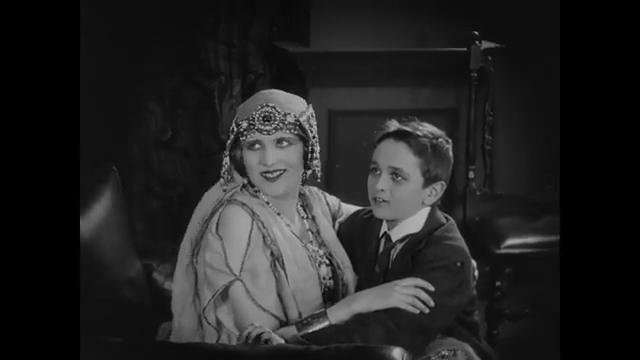
CHAPTER XXX
THE CALL OF THE EAST
I seemed to haul myself back out of the pit of unconsciousness by the
aid of two little hands which clasped my own. I uttered a sigh that
was almost a sob, and opened my eyes.
I was sitting in the big red-leathern armchair in my own study ... and
a lovely but truly bizarre figure, in a harêm dress, was kneeling on
the carpet at my feet; so that my first sight of the world was the
sweetest sight that the world had to offer me, the dark eyes of
Kâramanèh, with tears trembling like jewels upon her lashes!
I looked no further than that, heeded not if there were others in the
room beside we two, but, gripping the jewel-laden fingers in what must
have been a cruel clasp, I searched the depths of the glorious eyes in
ever-growing wonder. What change had taken place in those limpid,
mysterious pools? Why was a wild madness growing up within me like a
flame? Why was the old longing returned, ten-thousandfold, to snatch
that pliant, exquisite shape to my breast?
No word was spoken, but the spoken words of a thousand ages could not
have expressed one tithe what was held in that silent communion. A
hand was laid hesitatingly on my shoulder. I tore my gaze away from
the lovely face so near to mine, and glanced up.
Azîz stood at the back of my chair!
"God is all merciful," he said. "My sister is restored to us" (I loved
him for the plural) "and she remembers."
Those few words were enough; I understood now that this lovely girl,
who half knelt, half lay at my feet, was not the evil, perverted
creature of Fu-Manchu whom we had gone out to arrest with the other
vile servants of the Chinese doctor, but was the old, beloved
companion of two years ago, the Kâramanèh for whom I had sought long
and wearily in Egypt, who had been swallowed up and lost to me in that
land of mystery.
The loss of memory which Fu-Manchu had artificially induced was
subject to the same inexplicable laws which ordinarily rule in cases
of amnesia. The shock of her brave action that night had begun to
effect a cure; the sight of Azîz had completed it.
Inspector Weymouth was standing by the writing-table. My mind cleared
rapidly now, and standing up, but without releasing the girl's hands,
so that I drew her up beside me, I said:
"Weymouth—where is—?
"He's waiting to see you, doctor," replied the Inspector.
A pang, almost physical, struck at my heart.
"Poor, dear old Smith!" I cried, with a break in my voice.
Dr. Gray, a neighbouring practitioner, appeared in the doorway at the
moment that I spoke the words.
"It's all right, Petrie," he said, reassuringly; "I think we took it
in time. I have thoroughly cauterised the wounds, and granted that no
complication sets in, he'll be on his feet again in a week or two."
I suppose I was in a condition closely bordering upon the hysterical.
At any rate, my behaviour was extraordinary. I raised both my hands
above my head.
"Thank God!" I cried at the top of my voice, "thank God!—thank God!"
"Thank Him, indeed," responded the musical voice of Azîz. He spoke
with all the passionate devoutness of the true Moslem.
Everything, even Kâramanèh, was forgotten, and I started for the door
as though my life depended upon my speed. With one foot upon the
landing, I turned, looked back, and met the glance of Inspector
Weymouth.
"What have you done with the—body?" I asked.
"We haven't been able to get to it. That end of the vault collapsed
two minutes after we hauled you out!"
As I write, now, of these strange days, already they seem remote and
unreal. But, where other and more dreadful memories already are grown
misty, the memory of that evening in my rooms remains clear-cut and
intimate. It marked a crisis in my life.
During the days that immediately followed, whilst Smith was slowly
recovering from his hurts, I made my plans, deliberately; I prepared
to cut myself off from old associations—prepared to exile myself,
gladly; how gladly I cannot hope to express in mere cold words.
That my friend approved of my projects I cannot truthfully state, but
his disapproval at least was not openly expressed. To Kâramanèh I said
nothing of my plans, but her complete reliance in my powers to protect
her, now, from all harm, was at once pathetic and exquisite.
Since, always, I have sought in these chronicles, to confine myself to
the facts directly relating to the malignant activity of Dr.
Fu-Manchu, I shall abstain from burdening you with details of my
private affairs. As an instrument of the Chinese doctor, it has
sometimes been my duty to write of the beautiful Eastern girl; I
cannot suppose that my readers have any further curiosity respecting
her from the moment that Fate freed her from that awful servitude.
Therefore, when I shall have dealt with the episodes which marked our
voyage to Egypt—I had opened negotiations in regard to a practice in
Cairo—I may honourably lay down my pen.
These episodes opened, dramatically upon the second night of the
voyage from Marseilles.